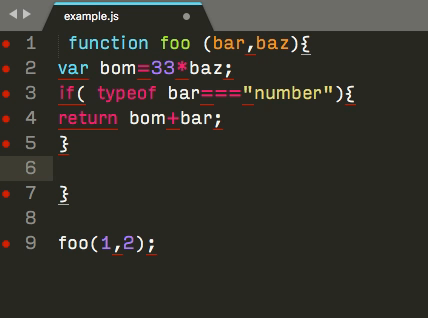Watches your files for changes, runs them through ESLint's fix function, then overwrites them if they have been fixed.
Uses your existing ESLint configuration.
It's good for productivity, helping your team conform to whatever JS style guide you choose without worrying about text editor plugins or additional setup. Heck, you could have different projects using totally different style guides, and your developers won't care whether they have to write semicolons or not.
npm i --save-dev eslint-auto-fixnpx eslint-auto-fixOr add it to your package.json
{
"scripts": {
"fix-js": "eslint-auto-fix"
}
}Next time you save a file with code like this:
function qux (foo,bar){
return foo+bar}
It will be automatically converted into code that adheres to your style guide, so it could become this:
function qux(foo, bar) {
return foo + bar;
}
--verbose to report whenever a file is fixed.
--fix-on-startup to fix all matching files when this task starts. The default is to only fix files when they are changed.
[globs-to-watch] are all the file globs you want eslint-auto-fix to watch. You can pass multiple globs.
Example:
npx eslint-auto-fix "src/**/*.js" "cli.js" "bin/*.js"Because your shell loves to expand * characters, you'll probably want to put these in quotes. Otherwise it'll feed a limited number of file paths to eslint-auto-fix, and should you add new files that would match that initial glob, they won't be fixed.
Example:
npx eslint-auto-fix "lib/*.js"The above will probably do what you want. If a new file is added in the lib folder, eslint-auto-fix will watch it and fix it automatically without requiring you to restart the process.
However:
npx eslint-auto-fix lib/*.jsWithout the quotes this will only watch the .js files that are present in the lib folder at the time this process starts.
If you don't provide the file globs to watch, it will watch all files in your project ending in .js.
This module has a peer dependency on ESLint. If you don't already have that installed in your project, add it to your "devDependencies" in package.json. If anything weird is going on, check the version requirements and let me know.
What can be fixed is limited by what ESLint can fix. See their rules page for all the fixable rules.
